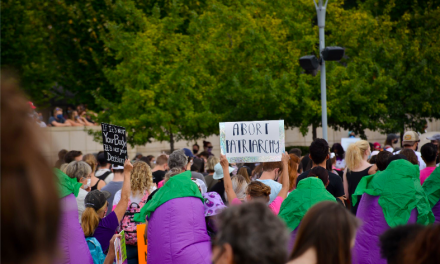Emory’s Goizueta Business School Master of Business Administration (MBA) program was ranked No. 1 in job placement in Bloomberg BusinessWeek Business Schools’ annual rankings.
The list, released on Nov. 1, represents a six-spot leap from seventh place last year.
Associate Dean and Executive Director of the MBA Career Management Center Wendy Tsung said that although she is proud of the results, it is not necessarily what the program aspires for.
“There are people behind these numbers, and that’s the more important part of it,” Tsung said. “It’s that our students are able to find opportunities that they want to be at.”
Tsung said the fact that the graduate offer rate – which is the percentage of students who receive a job offer after graduating – is at 98 percent. Meanwhile, the acceptance rate, or the percentage of students who accept these job offers, is at 97 percent, which is more important than a ranking, Tsung explained. She added that the numbers reflecting job offers and job acceptances showcase that students are satisfied with the opportunities they have.
Ninety-one percent of graduates from the MBA class of 2012 received job offers by graduation, a six percent increase from last year. After three months, Tsung said 98 percent received job offers.
According to BusinessWeek, percentages of unemployed students three months after graduation from Emory University’s MBA program changed from five percent in 2011 to two percent in 2012.
The program has seen significant improvement during the past three to four years, Vice Dean of Programs and professor of organization and management Rob Kazanjian said. “This change,” he said, “is attributable to multiple changes implemented around four years ago primarily in admissions, curriculum structure and outside-the-classroom opportunities.”
“It’s hard to point to one thing as the determinant of the success,” Kazanjian said. “We think a lot of things have come together now to make our students very popular amongst recruiters.”
The Dean of Goizueta Business School Larry Benveniste, Tsung and Kazanjian paved the way for changes in three different aspects of the program about four years ago, Kazanjian said.
For example, he noted, the B-School reshaped its admissions process by reviewing candidates in a more holistic view rather than simply viewing them as numbers – like years of work experience and exam scores.
“We decided, as a small school, we could do some stuff that the bigger schools can’t,” Kazanjian said. “We started to look at the whole candidate.”
The school now requires every prospective student to undergo an interview process, for example.
In addition, the program underwent a curriculum revision around four years ago, where first-year students complete all required courses within their first semester in the program, leaving space to enroll in electives during their spring semester. Students are also required to take a new professional development class. According to Tsung, the class prepares students for recruiters in September.
Kazanjian also cited a required track called Management Practice, in which first-year students solve a real, unstructured problem from a company in their spring semester, allowing them to gain real-world experience.
Because of this change, students have already finished their core courses when companies start looking for candidates in January of the students’ first year. This change also allows them to perform better in interviews and helps them in obtaining internships.
In the past two years, Kazanjian said, the percentage of students who have received full-time offers from the companies they interned with during the summer has doubled.
Both Kazanjian and Tsung said that although the ranking makes the B-School proud, administrators are much more concerned with the satisfaction level of each student rather than numbers.
“I tend not to want to go around and talk about rankings and ratings and those kinds of things,” Kazanjian said. “They’re double-edged swords. You can fall as well as rise on those things… I am happy if we do well … but I wouldn’t design the school around it.”
Goizueta Business Association Vice President of Career Management Mary Ann Jentz McDufford, who is also a second-year MBA student, said she is very excited about this ranking.
“It has been a lot of fun being a part of an MBA program that is seen as on the way up,” McDufford wrote in an email to the Wheel. “Students really take pride in being a part of it … [They] see the program as up and coming. It’s already a top 20 program, and many students realize that their legacy is to leave it better than when they found it.”
BusinessWeek’s rankings, available on the company’s website, also stated that 34 percent of Emory University MBA graduates were entering careers in consulting, 23 percent in financial services and 13 percent in consumer products. The top employers for Emory students are Deloitte, Accenture and Bank of America, according to the website.
Following Emory, the University of California at Berkeley ranked second while Northwestern University and the Massachusetts Institute of Technology ranked third and fourth, respectively.
– By Karishma Mehrotra
The Emory Wheel was founded in 1919 and is currently the only independent, student-run newspaper of Emory University. The Wheel publishes weekly on Wednesdays during the academic year, except during University holidays and scheduled publication intermissions.
The Wheel is financially and editorially independent from the University. All of its content is generated by the Wheel’s more than 100 student staff members and contributing writers, and its printing costs are covered by profits from self-generated advertising sales.






#1 in “job placement” but #22 in the rankings overall.
Do better.